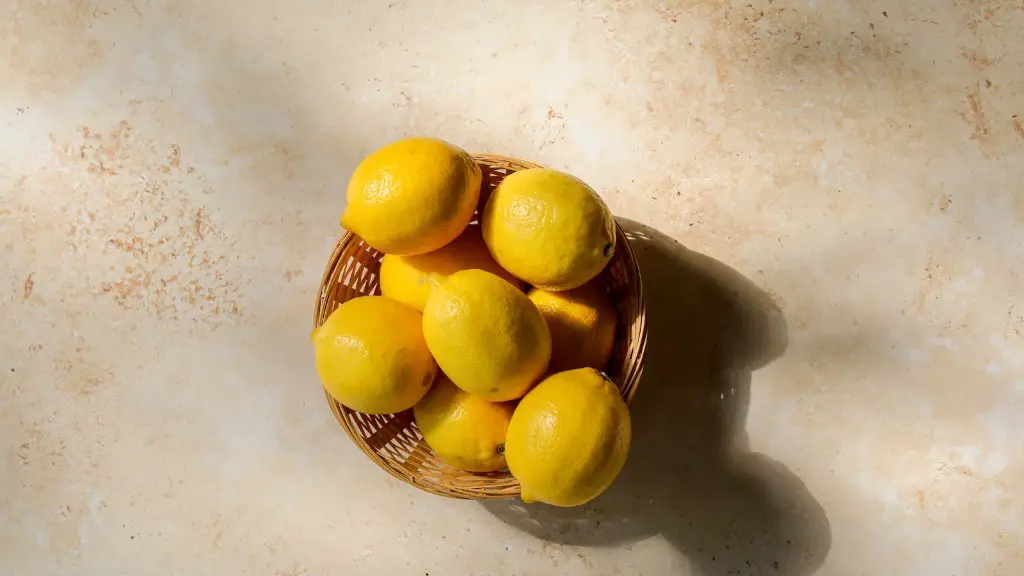Comparing the soil type that’s best for lemon trees depends on what tree variety you’re growing and its specific needs. You’ll need soil that’s fast draining and slightly acidic; a mixture of sandy and clay-like loam is ideal. It’s also crucial to know the tree’s rooting zone and plan for irrigation. It’s important to note that citrus trees require more minerals than other fruit trees, which is why soil specifically mixed for citrus is ideal. All citrus trees require a soil type that’s high in organic matter, so amending the soil before planting is imperative. Also, adding fertilizer to the soil is an important step in providing the tree with the nutrients it needs.
Soil pH Level
The ideal soil pH level for lemon trees is between 6 and 6.5. Citrus trees are sensitive to acidic soil which can keep the tree from receiving the necessary mineral nutrients it needs. If soil testing shows the pH is too high, you can reduce it by adding sulfur. If the pH is too low, then you’ll need to add dolomitic lime. Lemon tree roots need air and water, and sandier soils allow oxygen to enter the soil.
Organic Content
Organic matter plays an important role in the growth of lemon trees, so it’s important to incorporate into the soil. Adding compost is an easy way to get this job done; it will also improve air-flow. Aside from compost, you can also use natural amendments like manure, bark chips, and peat moss.
Soil Moisture
Lemon trees need soil with plenty of moisture; the soil type you choose needs to allow the water to drain out quickly. The soil should be dry to the touch and not retain water, which leads to root rot and other plant diseases. If you’re planting a new tree near your home, then you may need to run a hose or water system to ensure the right amount of moisture is available to the tree.
Soil Texture
When it comes to texture, sandy loam or clay-like loam are the ideal soil types for lemon trees. When it comes to texture, sandy loam or clay-like loam are the ideal soil types. Sandy loam is a type of soil composed of sand, silt, and clay particles and provides the soil with good water drainage. Clay-like loam has high clay content, and it helps the soil retain water and organic matter. The mixture of both soil types is ideal for citrus trees.
What is Citrus Soil and Foliar Fertilizer?
Citrus soil is a mix of soil specifically formulated to support citrus trees. It includes sand, silt, clay and organic matter to provide adequate drainage and provide nutrients for the tree. Foliar fertilizer is a type of fertilizer applied directly to the leaves of the tree, which helps the tree absorb the nutrients. Most citrus fertilizer comes in granule form and can be applied to the soil every six to eight weeks.
Test the Soil Before Planting
Before planting your lemon tree, test the soil to ensure it meets the necessary requirements. The pH levels should be between 6 and 6.5 and the soil should be high in organic matter. If the soil doesn’t meet the criteria, then you’ll need to amend it before you’re able to plant the tree. Testing the soil will also help you determine what type of fertilizer and additives you’ll need to use.
How to Amend the Soil for Planting a Lemon Tree?
The best way to amend soil for a lemon tree is to add compost or other natural amendments such as manure, peat moss, or bark chips. These amendments will help improve drainage and add necessary micronutrients. Also, you may need to add fertilizer to the soil to provide extra minerals and nutrients. If the soil is too acidic, you can add sulfur to reduce the pH level and if the soil is too alkaline, you can use dolomitic lime to raise the pH level.
How Does Mulching Help a Lemon Tree?
Mulching is an important part of lemon tree care because it helps the soil retain moisture, keeps roots cool, and can suppress weed growth. Mulching helps protect the tree from piercing winter cold and scorching summer temperatures. Organic materials such as bark chips, straw, and dried leaves can be used for mulching and should be applied at least two inches deep to be effective.
What Type of Planting Pot is Best for a Lemon Tree?
If you’re planning to grow a lemon tree in a pot, then you need to choose the right type of container. Citrus trees need large pots with at least a 20 inch depth to provide enough space for the roots to grow. A terra cotta pot or a plastic pot with multiple drainage holes at the bottom is ideal. The material of the pot should also be breathable to keep the soil from getting too soggy which could lead to root rot.
Can Citrus Trees Survive in Poor Soil?
It is possible for citrus trees to survive in poor soil, however, not ideal. Poor soil does not provide enough nutrients for the tree to truly thrive, and it can even stunt the growth. Poor soil can also lead to nutrient deficiencies, root rot, and other plant diseases. The best option is to test the soil and adjust it to the needs of your lemon tree.


